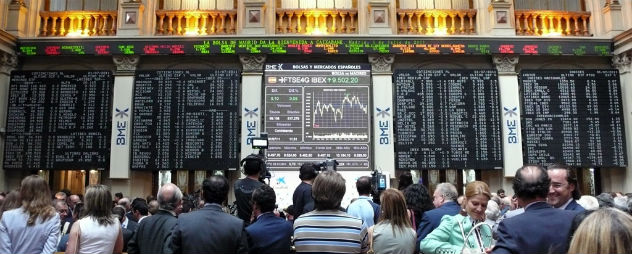
European stock markets are trading mixed as investors closely monitor the correction in US bond yields. In Spain, Ibex continues its week without a clear course. After spending Wednesday oscillating between red and green, today didn't start very differently from the previous one, with the Spanish index trading near the 8,700, and alternating the positive sign with the negative.
- 0,317€
- 0,00%
- 0,015€
- 0,00%
- 11.595,000
- 0,50%
The US also left its mark on global bond markets where, after a brief respite on Tuesday, the sell-off resumed yesterday morning, though Bund, Gilt and Treasury yields reversed course in the afternoon. Where peripheral Europe followed the Bund in its path higher, peripherals yields remained elevated as Bund yields fell back down. This was most pronounced in Portugal and Italy, which face economic and political hurdles. 10y Portuguese yields surged by about 17bps while Italian bonds rose 7bps. Perhaps the only winner is the ECB, as these rising yields render more bonds eligible for its asset purchase program – although the turnaround in Bund yields means that the ECB is not granted much respite for the German debt market.
As it has been happening since the last months, if the banks fall the Ibex stagnates. The week of the Spanish banking sector is not being the best in the Madrid stock market. This Thursday started with practically all the banks falling, including Popular (-2.2%), which is still immersed in the dismissal program of almost 3,000 jobs.
Janet Yellen, Fed's President will speak this afternoon, which could give new clues as to what the next movements of the institution will be. However, it is more likely to refer back to the need for good data in the next employment report. The possible rate hike by the Fed is of vital importance to the Spanish stock market as any change in US monetary policy will directly influence the decisions of the European Central Bank.

